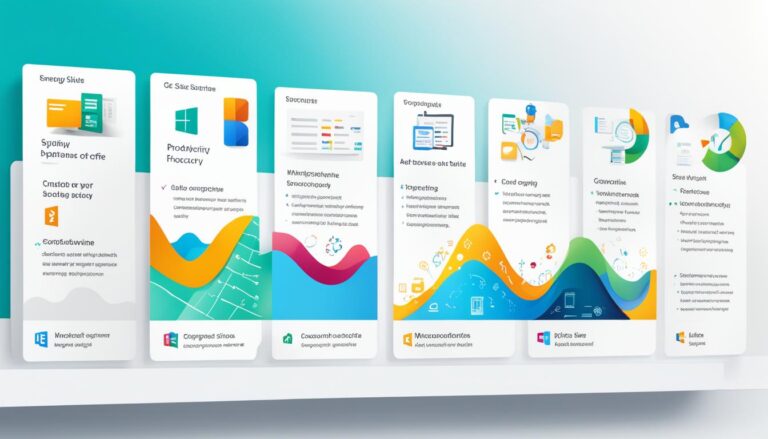Unlock Your Potential with a 4 Day Work Week

Are you tired of the traditional 9-5 grind? Do you dream of having a more flexible schedule and a better work-life balance? It’s time to unlock your potential with a 4 day work week. Contrary to common beliefs, reducing your work hours can actually lead to numerous benefits, including increased productivity, reduced stress, and improved overall satisfaction. Curious to know more? Read on and discover why embracing a 4 day work week could be the key to finding your dream job and living a fulfilling life.
The concept of a 4 day work week is gaining popularity as more and more professionals realize the advantages it offers. Imagine having an extra day off each week to pursue your passions, spend quality time with loved ones, or simply recharge and rejuvenate. By striking a better balance between work and personal life, you can experience a significant boost in productivity and satisfaction.
In this article, we will explore the benefits of a 4 day work week, the cost savings associated with it, and ways to overcome challenges in its implementation. We will also delve into the future of work and the link between a shorter workweek and innovation. Get ready to redefine your work-life balance and unlock new possibilities!
Key Takeaways:
- A 4 day work week can lead to increased productivity and reduced stress.
- By prioritizing work-life balance, companies can retain employees more effectively.
- Implementing a shorter work schedule can result in significant cost savings.
- Workplace challenges can be overcome by optimizing work processes and streamlining tasks.
- The future of work is likely to embrace a shorter workweek, fostering innovation and employee satisfaction.
The Benefits of a 4 Day Work Week
Implementing a 4 day work week can have numerous benefits for both employees and companies. Let’s explore how this alternative work schedule can lead to increased productivity, improved work-life balance, enhanced employee satisfaction, and reduced stress.
Lower Burnout Rates
Companies that adopt a 4 day work week often experience lower burnout rates among their employees compared to those following a standard 40-hour workweek. Shortening the workweek allows employees to recharge and rejuvenate, resulting in improved mental health and well-being.
Increased Productivity
Employees who have a shorter workweek report feeling more engaged and motivated. With fewer work hours, individuals tend to focus better, prioritize their tasks, and find innovative solutions. Research has shown that a 4 day work week can lead to a 15% increase in productivity.
Improved Work-Life Balance
A 4 day work week provides employees with more time for personal pursuits and family commitments. By giving individuals an extra day off, they can engage in activities they enjoy, spend quality time with loved ones, and take care of personal errands. This improved work-life balance contributes to greater overall satisfaction in both personal and professional areas.
Enhanced Employee Satisfaction
With a reduced workweek, employees often experience higher satisfaction levels. They feel valued by their employers and appreciate the flexibility provided. This increased job satisfaction leads to improved employee retention, as individuals are more likely to stay with a company that prioritizes their well-being.
Reduced Stress
A 4 day work week has proven to be effective in reducing stress levels among employees. Having more time to relax and recharge helps individuals manage their workload, resulting in a healthier work-life balance. By reducing stress, employees can maintain their well-being and perform better in their roles.
Overall, a 4 day work week offers numerous benefits including lower burnout rates, increased productivity, improved work-life balance, enhanced employee satisfaction, and reduced stress. Companies that embrace this alternative work model can create a more positive and productive work environment.
| Benefits | Summary |
|---|---|
| Lower Burnout Rates | Employees experience improved mental health and well-being, resulting in lower burnout rates. |
| Increased Productivity | Shorter work hours lead to better focus, prioritization, and innovation, resulting in increased productivity. |
| Improved Work-Life Balance | Having an extra day off allows individuals to pursue personal interests and spend time with loved ones, leading to a better work-life balance. |
| Enhanced Employee Satisfaction | Employees feel valued and appreciated, leading to higher job satisfaction and improved retention. |
| Reduced Stress | A shorter workweek helps employees manage their workload and reduces stress levels. |

The Cost Savings of a 4 Day Work Week
Burnout costs companies billions of dollars each year in terms of healthcare expenses and lost productivity. Implementing a 4 day work week can lead to significant cost savings. With reduced work hours, employees experience decreased burnout rates, resulting in improved mental health and well-being. This, in turn, increases productivity and efficiency, further benefiting companies financially. By prioritizing employee well-being and work-life balance, companies can create a positive and thriving work environment.
Research shows that burnout not only affects employee morale and well-being but also has a significant impact on the bottom line. Companies that neglect the well-being of their employees end up paying the price in terms of increased healthcare costs, turnover rates, and reduced productivity.
Implementing a 4 day work week can help mitigate these costs by addressing the root cause of burnout – excessive work hours and a lack of work-life balance. When employees have more time to recharge and take care of their personal well-being, they are less likely to experience burnout and are more engaged and productive during their working hours.
By reducing the number of workdays, companies can also optimize their resources and streamline their operations, leading to improved efficiency. Employees can prioritize their tasks, focus on high-value work, and collaborate more effectively, all of which contribute to higher productivity levels.
Furthermore, a 4 day work week fosters a culture of trust and employee empowerment. When individuals feel their well-being and work-life balance are valued, they are more likely to be loyal and dedicated to their organization. This sense of fulfillment and commitment can lead to reduced turnover rates and associated costs.
To illustrate the potential cost savings of a 4 day work week, consider the following table:
| Cost Categories | Annual Cost |
|---|---|
| Healthcare expenses due to burnout | $X million |
| Lost productivity from burnout-related absenteeism | $Y million |
| Savings from reduced healthcare expenses and improved productivity | $Z million |
| Total cost savings with a 4 day work week | $X million + $Y million + $Z million |
As seen in the table above, the cost savings resulting from implementing a 4 day work week can be significant. By investing in employee well-being and work-life balance, companies can not only improve productivity and efficiency but also save valuable resources that can be reinvested in the business.

Implementing a 4 day work week is a win-win situation for both companies and employees. Companies can reduce costs associated with burnout while improving productivity and efficiency. Employees can enjoy a better work-life balance, leading to increased job satisfaction and overall well-being.
Section Table: Cost Savings of a 4 Day Work Week
Overcoming Challenges in Implementing a 4 Day Work Week
Implementing a 4 day work week requires work redesign within organizations. To ensure a successful transition, leaders must address key challenges and identify areas where time savings, efficiency, and workload management can be improved.
1. Reducing Meetings
One of the biggest time-wasters in traditional work environments is excessive meetings. By reevaluating the necessity and effectiveness of meetings, organizations can significantly reduce time spent in unproductive discussions. Encourage the use of alternative communication tools, such as project management software or instant messaging platforms, for quick updates and collaboration.
2. Eliminating Distractions
Distractions can take a toll on productivity, especially when work hours are limited. Encourage employees to create distraction-free environments by minimizing noise, implementing designated quiet zones, and establishing clear guidelines for minimizing interruptions. This allows individuals to focus on their tasks and make the most of their reduced work schedule.
3. Addressing Heavy Workloads
Implementing a 4 day work week shouldn’t lead to overwhelming workloads for employees. Leaders should assess the distribution of tasks and determine if there are opportunities to streamline processes or redistribute work more evenly. This creates a balanced workload that enables employees to complete their responsibilities effectively within the reduced hours.
By optimizing work processes, eliminating time-wasting activities, and distributing workloads strategically, organizations can create an environment that supports a successful 4 day work week. This not only improves efficiency and time savings but also enhances overall work-life balance and employee satisfaction.

The Future of Work: A Shift Towards a 4 Day Work Week
While the adoption of a 4 day work week may currently be slow, the future of work is poised for a significant shift. As artificial intelligence and technology continue to reshape industries, companies have the opportunity to revolutionize the way we work.
Offering a shortened workweek can not only lead to productivity gains but also contribute to a healthier work-life balance. By providing employees with more time to recharge and rejuvenate, companies can improve overall well-being and job satisfaction.
Embracing a new work ethic that values rest and relaxation doesn’t mean sacrificing productivity. On the contrary, studies have shown that giving employees adequate time off can enhance their creativity and problem-solving abilities, leading to higher levels of innovation.
Benefits of a 4 Day Work Week
- Increased productivity: Employees who have a better work-life balance tend to be more motivated and focused, resulting in improved productivity.
- Enhanced well-being: With more time for personal pursuits and self-care, employees experience reduced stress levels and boosted overall well-being.
- Improved job satisfaction: A shorter workweek allows employees to spend more quality time with their families, pursue hobbies, and enjoy life outside of work, leading to higher job satisfaction.
As companies recognize the value of the 4 day work week, we can expect more organizations to adopt this approach in the future. By prioritizing employee well-being and fostering a culture that values work-life balance, companies can attract and retain top talent, while also reaping the benefits of increased productivity and innovation.
With the future of work undergoing transformation, it is essential for employers and employees alike to adapt to changing expectations. By embracing the potential of a 4 day work week, we can create a sustainable and fulfilling work environment that prioritizes well-being and productivity.
The Link Between a 4 Day Work Week and Innovation
Innovation is often driven by individuals who possess a strong work ethic and embrace hard work. When employees are given the opportunity to work a 4 day week, they are provided with the necessary time and space to excel in their roles and unleash their innovative potential.
By placing a value on the rest and well-being of their employees, companies create an environment that encourages increased innovation and value creation. Recognizing the correlation between hard work and innovation, organizations can foster a culture that rewards excellence and drives forward-thinking solutions.
When employees have the freedom to recharge and rejuvenate, they are more likely to approach challenges with fresh perspectives and innovative ideas. This leads to the development of new processes, products, and services that provide value to both the company and its customers.
Furthermore, a 4 day work week promotes a healthier work-life balance, allowing employees to engage in activities outside of work that can inspire creativity and contribute to innovative thinking. By encouraging employees to pursue their passions and interests, companies can tap into their unique perspectives and experiences, fostering a rich culture of innovation.
Embracing a 4 day work week not only benefits employees’ overall well-being and work-life balance but also sets the stage for increased productivity and value creation. By cultivating a work environment that supports innovation and a strong work ethic, companies can position themselves at the forefront of their industries.
Benefits of a 4 Day Work Week for Innovation
| Benefits | Description |
|---|---|
| Enhanced creativity | A 4 day work week allows for more time to engage in activities that spark creativity and innovation. |
| Higher employee morale | By prioritizing work-life balance, employees feel more satisfied, leading to increased motivation and innovative thinking. |
| Reduced burnout | Providing employees with regular breaks and time for rest prevents burnout, allowing for sustained innovative efforts. |
| Collaboration and knowledge sharing | A flexible work schedule encourages collaboration and the exchange of ideas, leading to greater innovation across teams. |
| Improved problem-solving | With more focused workdays, employees have the mental capacity to tackle complex challenges and find innovative solutions. |
By embracing a 4 day work week and valuing the importance of innovation, companies can tap into the full potential of their employees, driving growth, and success in today’s dynamic and competitive business landscape.

The Uptake of the 4 Day Work Week
While interest in a 4 day work week is high among both managers and workers, adoption rates have been relatively slow. However, the pace of change is gradually shifting towards a greater implementation of this alternative work schedule. Companies are beginning to recognize the numerous benefits it offers in terms of improved work-life balance, increased productivity, and enhanced employee well-being.
As organizations understand the positive impact of a reduced work schedule on employee satisfaction and overall quality of life, a growing number of businesses are incorporating the 4 day work week into their operations. Though the pace and depth of this change may vary across industries and regions, the overall trend points towards an embrace of a new way of working that prioritizes the well-being and productivity of employees.
By adopting a 4 day work week, companies not only enhance work-life balance for their employees but also tap into the potential for increased productivity. With more time for rest, rejuvenation, and pursuing personal interests, employees experience reduced stress levels and a greater sense of fulfillment. This, in turn, leads to improved job satisfaction and higher productivity during their working hours. The adoption of a 4 day work week can ultimately create a positive and thriving work environment.
While the implementation of the 4 day work week may seem like a significant change, the long-term benefits it offers make it an attractive option for many businesses. As the modern workforce seeks a healthier work-life balance, companies that prioritize employee well-being and adapt to the evolving needs of their workforce are likely to thrive in the competitive job market. By embracing the 4 day work week, organizations can establish themselves as leaders in fostering a positive and productive work culture.
The Benefits of the 4 Day Work Week:
- Improved work-life balance
- Increased employee satisfaction
- Reduced stress and burnout
- Enhanced productivity during working hours
- Greater focus and efficiency
- Opportunities for personal growth and development
As more companies begin to recognize these advantages and witness the positive impact on their employees’ lives, the adoption of the 4 day work week is expected to continue gaining momentum. While the transition may involve challenges and adjustments, the long-term benefits to both employers and employees justify the pace of change towards this new way of working.
Conclusion
Embracing a 4 day work week unlocks the potential for individuals to find their dream job, improve productivity, and achieve a better work-life balance. By adopting this flexible schedule, you can reap numerous benefits that extend to both you and your employer.
A reduced work week has been proven to decrease burnout rates among employees, leading to increased satisfaction and engagement. This, in turn, boosts productivity by 15% or more, allowing you to accomplish more in less time.
Additionally, a 4 day work week provides the opportunity for a better work-life balance. With an extra day off, you can dedicate more time to personal pursuits, family, and self-care, leading to heightened overall well-being and satisfaction.
While challenges may arise in the implementation process, the future of work is moving towards prioritizing employee well-being and innovation. Companies are recognizing the value of a healthier work-life balance and are increasingly embracing this new work ethic. By embracing a 4 day work week, you can unlock your potential to thrive both professionally and personally, enjoying the benefits of increased productivity, improved work-life balance, and greater employee satisfaction.






